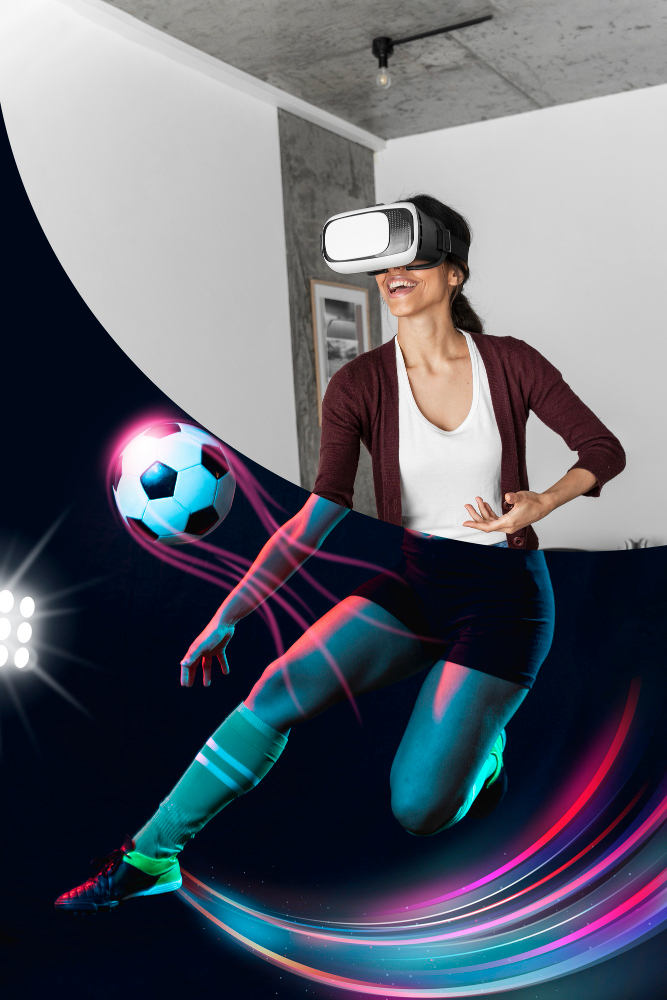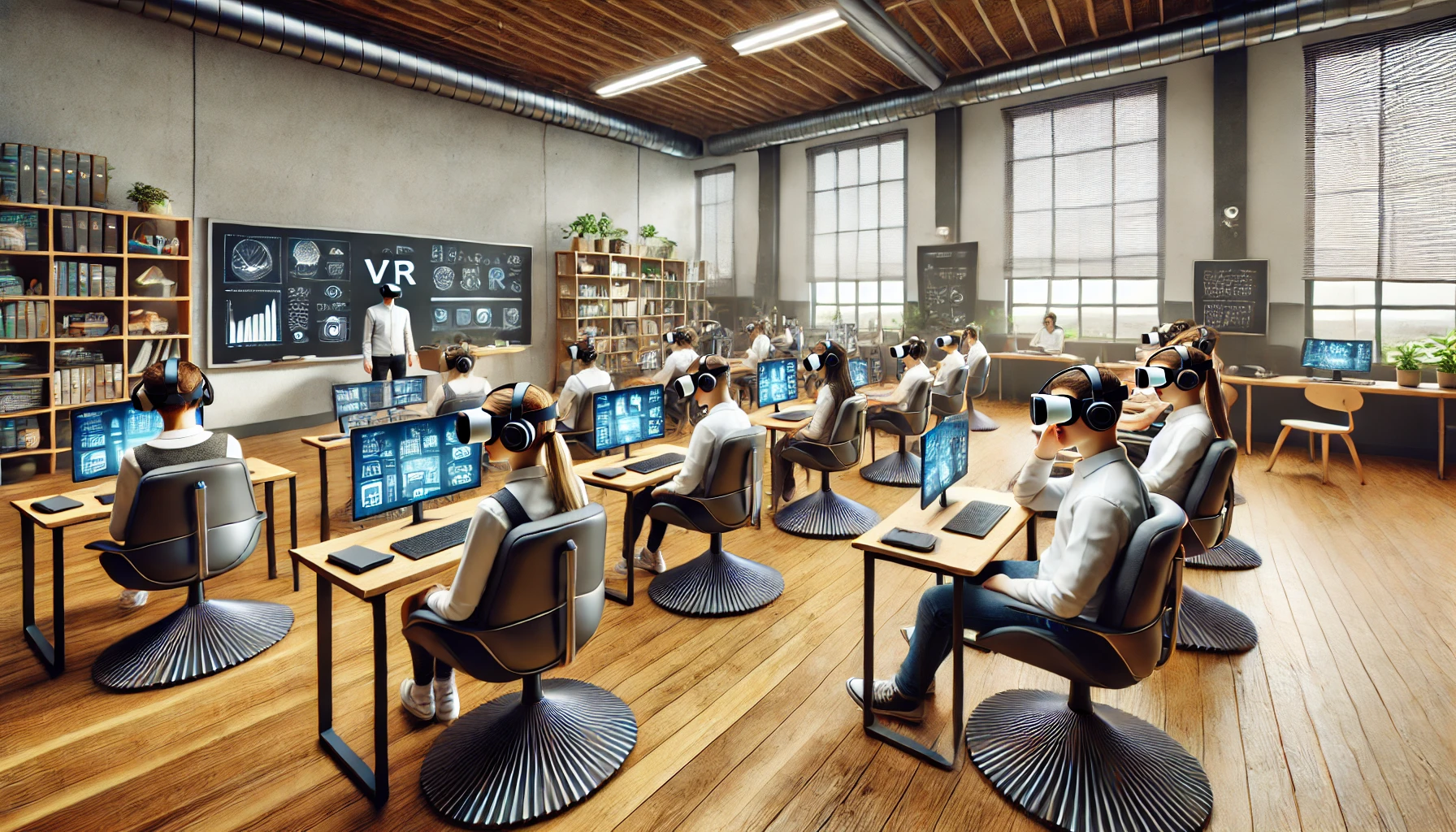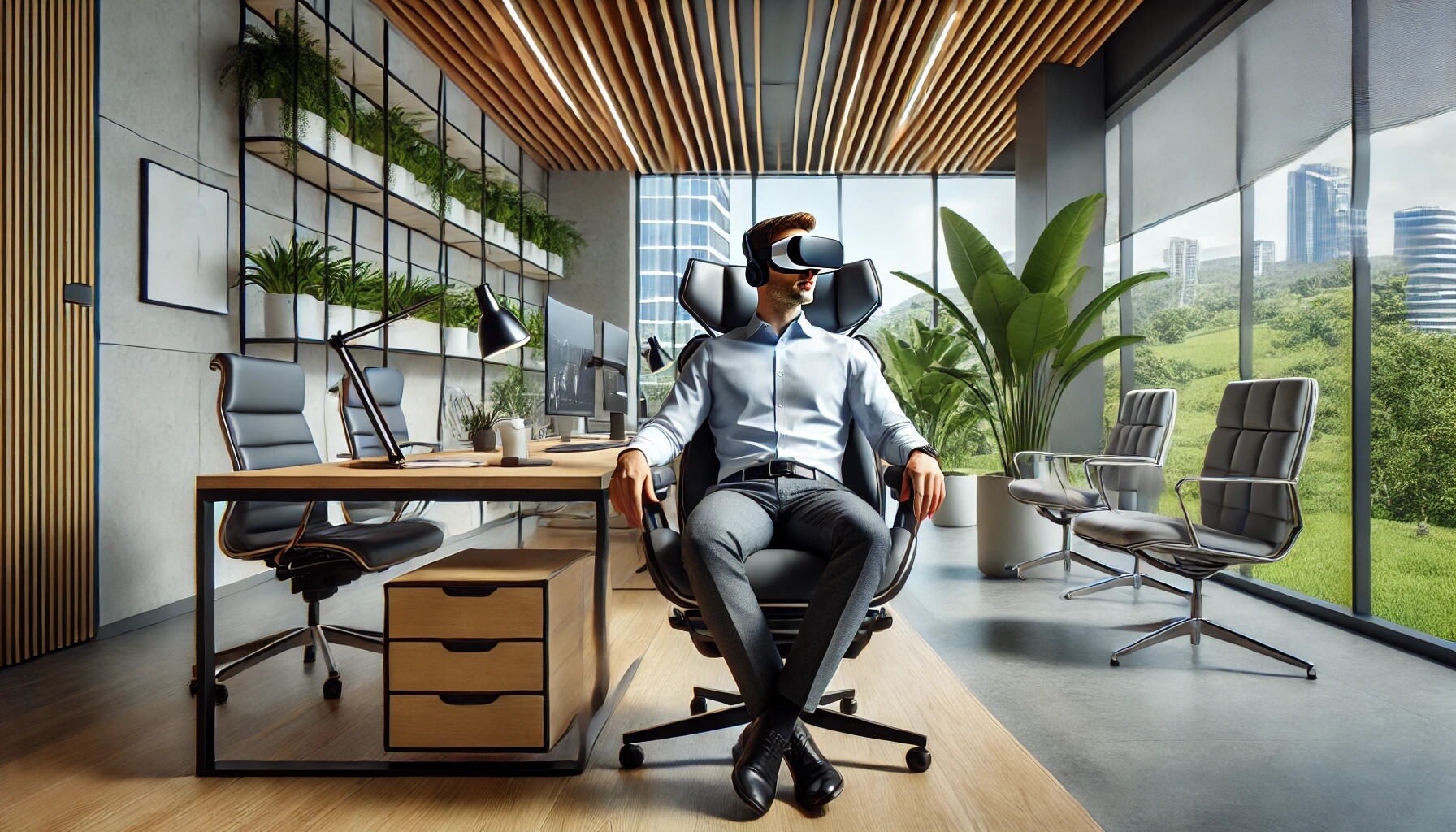Transforming Education with VR Immersion
Virtual reality (VR) technology allows users to experience simulated environments as if they were real. While VR has been around for decades, recent...
2 min read
 Nerdle
:
Oct 31, 2023 7:26:34 PM
Nerdle
:
Oct 31, 2023 7:26:34 PM

The way we consume sports media is rapidly changing thanks to advancements in artificial intelligence (AI) and immersive technologies like augmented and virtual reality. These innovations are providing fans with hyper-personalized and interactive viewing experiences that are transforming the sports industry. From customized broadcasts to immersive environments, AI and related technologies are disrupting traditional sports viewership.
One area where AI is making an impact is in creating customized broadcasts and viewing experiences tailored to individual fans. Using data collected on viewers' favorite teams, players, fantasy rosters, and overall viewing habits, media companies can now generate personalized game broadcasts, highlights packages, and analytical breakdowns. For example, a Boston Celtics fan in Los Angeles could get a broadcast focused solely on the Celtics, despite the local team being the Lakers. This means seeing more Celtics highlights, analysis from the Celtics announcers, and graphics catered specifically to Celtics storylines. The same personalization could apply to fans of any team or player. By tapping into the power of AI algorithms, networks can serve each fan content that caters to their fandom. This hyper-customized viewing keeps fans more informed and engaged.
Integrating interactive and immersive elements through augmented reality (AR) and virtual reality (VR) is also revolutionizing sports viewing. AR overlays real-time stats, data visualizations, and graphics into live game footage. This creates an enhanced and modern viewing experience where fans get contextual info and analysis seamlessly integrated into the game. For example, AR could overlay virtual first-down lines, player speeds, and other real-time data right on the field. VR allows an even deeper level of immersion by letting fans virtually attend live games. Fans can view games from any perspective and fully control their viewing experience. Imagine having a courtside seat at an NBA game, or standing on the sidelines at an NFL game - VR enables fans to digitally transport themselves into the action.
In addition to personalized broadcasts, AI algorithms can analyze game data to automatically generate smart video highlights and analytical breakdowns tailored to each fan's preferences. Platforms like NFL Films are using AI to quickly comb through footage and edit together custom highlight reels of your favorite players or top plays only minutes after games finish. Fans could also opt to receive personalized post-game analysis highlighting key performances, stats, and events related to the teams and players they follow. Rather than sifting through generic highlights, AI allows customized packages catered to what matters most to each individual fan.
As media consumption becomes more personalized and interactive, these AI and immersive technologies will enable sports leagues, broadcasters, and media platforms to keep fans engaged in new ways. The future of sports viewing is certainly hyper-personalized, responsive, and tailored specifically to each fan's unique interests, teams, players, preferences, and experiences. AI and related innovations provide the tools to transform passive viewing into dynamic and truly personalized encounters that deepen connections between fans and the sports they love.
Sources
Chen, B. (2022). Augmented reality is transforming how we watch sports. Wired.
Smith, J. (2021). The future is here: AI is changing how we watch sports. The Ringer.
Image by Freepik

Virtual reality (VR) technology allows users to experience simulated environments as if they were real. While VR has been around for decades, recent...

Live events like concerts and theater shows have remained largely the same over the past decades. But artificial intelligence and virtual reality are...

Employee wellness is a multifaceted concept that is rapidly evolving. As the workplace continues to change, driven by technology and new...